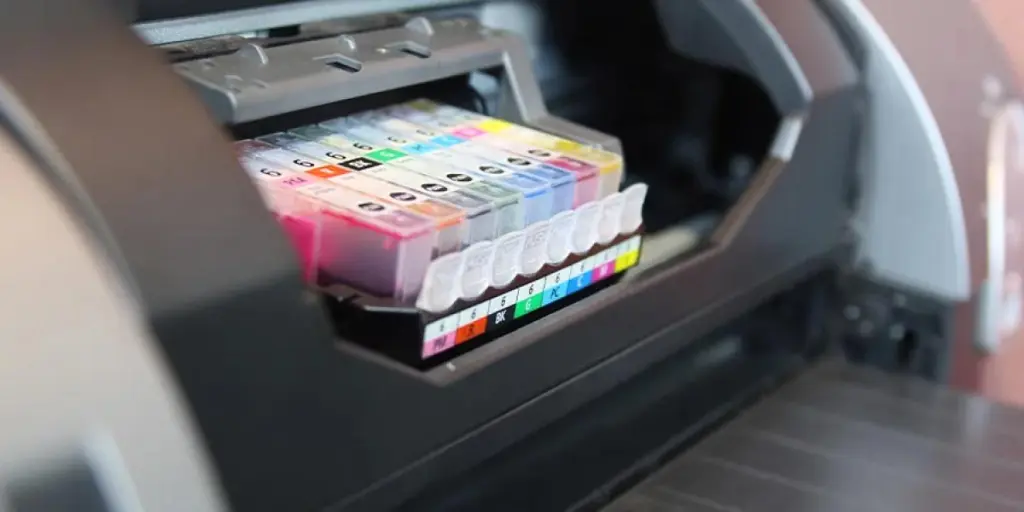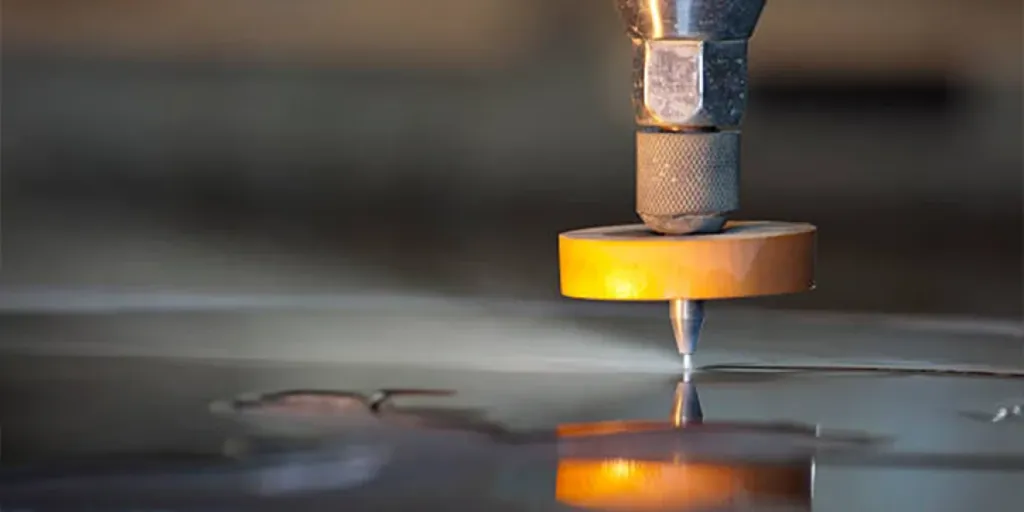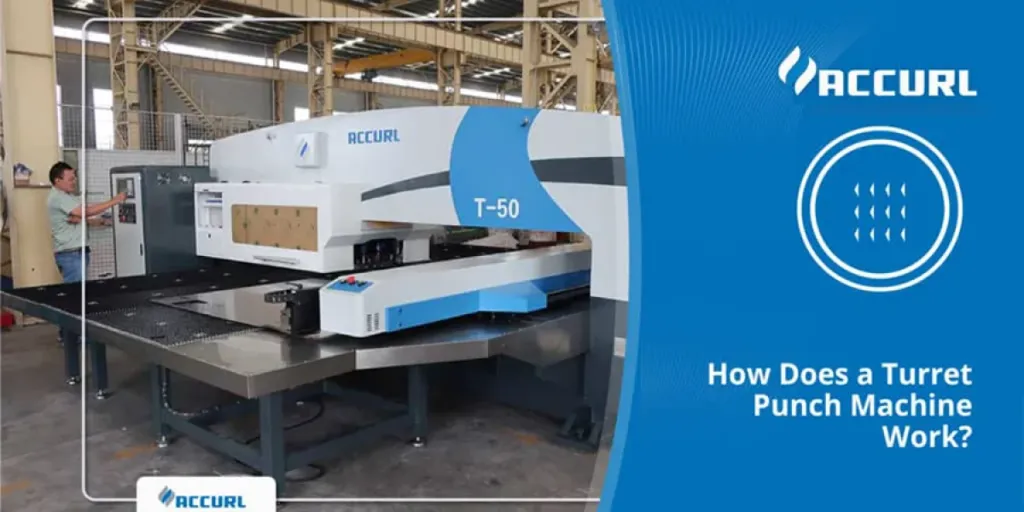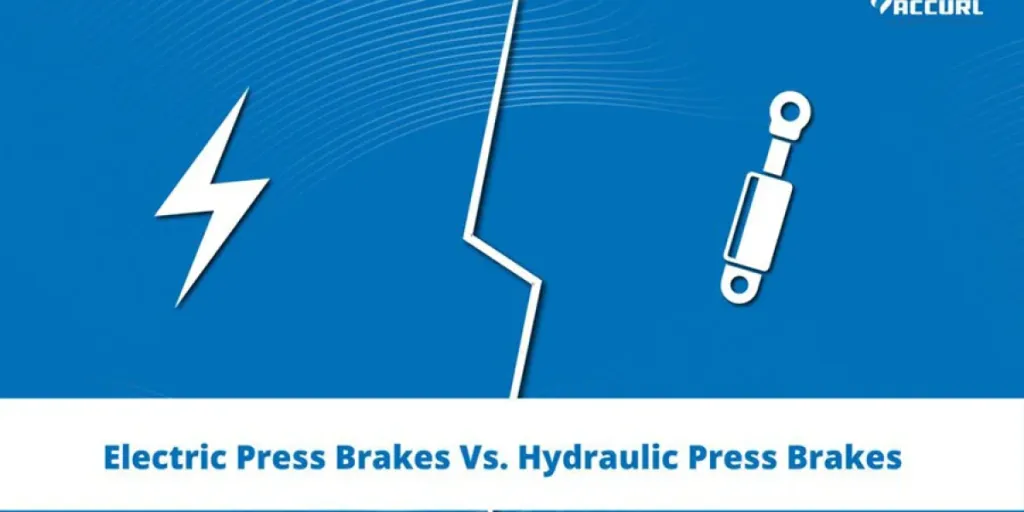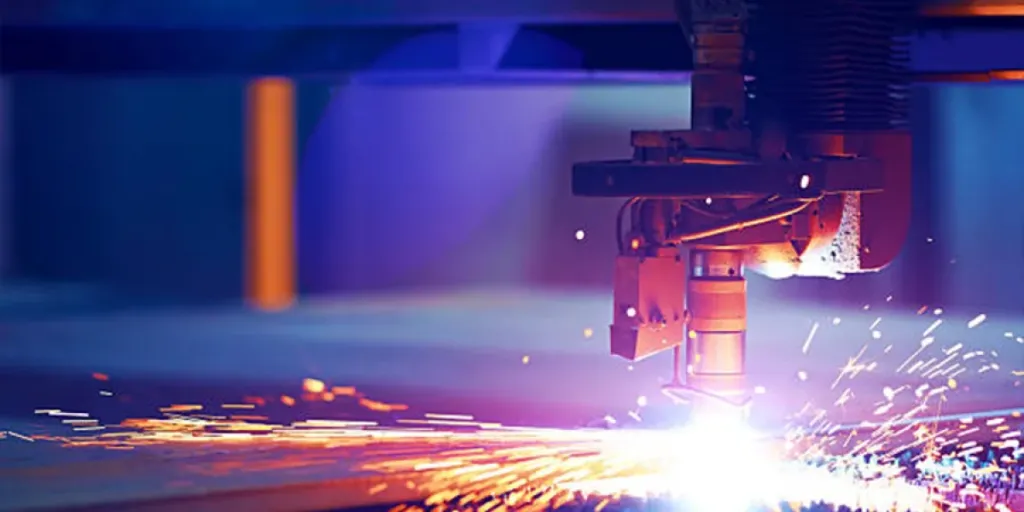Choosing the right printing equipment is important for creating high-quality print or engraved products. In this article, we will compare two types of printing equipment — laser marking machines and inkjet printers.
Both laser marking systems and inkjet printers use different printing methods, with each having unique advantages and pitfalls.
With that in mind, let us make a comparison between both products.
Table of Contents
What is a laser marking machine?
What is an inkjet printer?
What are the differences between laser marking machines and inkjet printers?
What are the benefits of laser marking machines?
What is a laser marking machine?
A laser marking machine is a popular tool for engraving on a variety of both metallic and non-metallic materials such as metal parts, wood, glass, paper, rubber, and ceramics.
Laser marking machines engrave items by concentrating the high-energy laser on the surface of the object for a very short time. This carefully vaporizes specific parts of the material being engraved, whereupon, with the accurately controlled movements of the laser beam, exquisite patterns or text are engraved on the chosen material.
You can typically find three main types of laser marking machine: an ultraviolet laser marking system, a fiber laser marking system, and a CO2 laser marking system— each having slightly different engraving mechanisms.
Laser marking machines are also used for engraving items such as jewelry, guns, metal parts, tools, tags, signs,crafts, gifts, electronic components and clothing accessories. Additionally, a laser marking machine can be used for engraving pharmaceutical packaging, wine packaging, building ceramics, beverage packaging, rubber products, and shell nameplates. Leather engraving, woodworking, and glass etching, among others, are also common uses of laser marking machines.
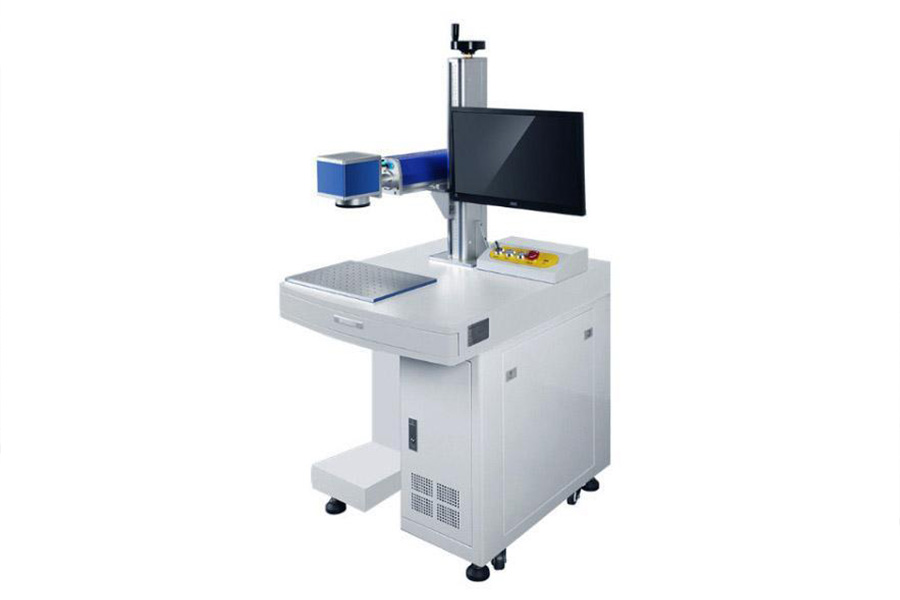
What is an inkjet printer?
An inkjet printer, or continuous inkjet (CIJ) printer, is a printing device that is controlled by software and uses a non-contact method to print on products.
The inkjet printer uses the principle of charged ink particles, which are powered by a high-voltage electric field, to print patterns, text, and numbers on the surface of various objects.
Additionally, the inkjet printer uses the charged deflection method for dispensing tiny amounts of ink onto the surface of the object being worked. This works by rapidly shooting out ink dots onto the surface of the work object to create the design pattern, shape, or text.
The position of each ink drop is controlled by the amount of electricity charged to, and received by, the ink drop. Usually, the ink drop is positioned vertically, and to change its position, the printed matter and the nozzle must move relative to each other, which then forms the printed data.
Inkjet printers are most used by producers of beverages, beer, mineral water, and by other similar industries.
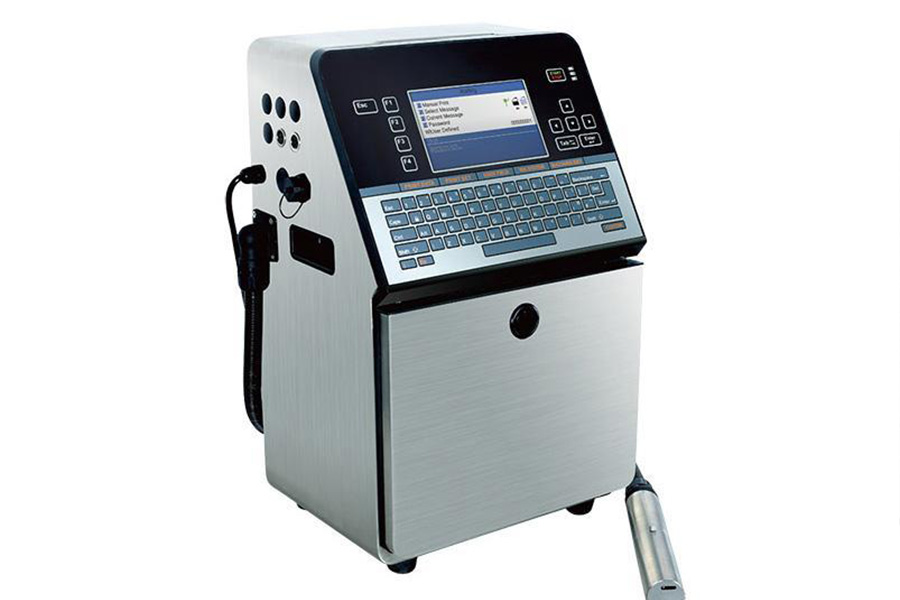
What are the differences between laser marking machines and inkjet printers?
Marking speed
Inkjet printer: These printers generally print at a speed of 30m/min (meters per minute) and can be divided into handheld marking and assembly line mechanical marking.
Laser marking machine: This printer type generally prints at a speed of 18m/s (meters per second) using intelligent automatic flying marking and static marking with manual positioning.
Conclusion: In terms of marking speed, the laser marking system is better than the inkjet printing system. So, if you want to improve your print production efficiency, a laser marking system is a better choice.
Applicable materials
Inkjet printer: These printers are applicable to most common materials, such as paper, leather, plastic, glass, and metal.
Laser marking machine: For laser marking machines, it is necessary to divide the applicable materials into different types for the different types of laser marking machines. While paper is suitable for a carbon dioxide laser marking machine, glass is more suitable for an ultraviolet laser marking machine, and metal material is suitable for a fiber laser marking machine.
Conclusion: In the case of a single product material, you can consider an inkjet printing system or a targeted laser etching machine. However, if your material selection is diverse, you can start with an inkjet printing system for better cost-effectiveness.
Configuration
Inkjet printer: These generally consist of an ink system, ink nozzles, ink cartridges, and a supporting operation data panel. More advanced inkjet printers are equipped with a blast freezing device.
Laser marking machine: These printers consist of a laser, field lens, galvanometer, and an intelligent chemical control computer or operation data system.
Conclusion: In terms of configuration, the laser marking system has the higher technical component capabilities of the two.
Marking effect
Inkjet printer: Adopts the chemical ink charged adsorption method, which can be applied to almost all paper materials. However, the adhesion degree and marking effect are easily affected by factors such as working environment humidity, temperature, and the smoothness of the working space.
Laser marking machine: Since laser marking machines use a laser to etch the surface of an object and so create an engraved effect, laser marking machines often produce clear and permanent results. However, specific materials should be used for the different types of marking machines to produce the best results for each of the marking machine types.
Conclusion: In terms of marking effects, while inkjet printing systems have a higher tendency to suffer issues such as making unwanted ink markings and having uneven or unclear ink distribution, those markings made by laser marking machines are mostly clear and permanent. However, one thing to note is that the marking effect of laser engraving systems on different materials will vary, meaning that inkjet printers have higher capabilities for adaptability, while laser etching systems are more specific.
Maintenance costs
Inkjet printer: Users need to clean the nozzle regularly and replace the ink cartridge.
Laser marking machine: Since there are no additional consumables, there is no extra maintenance cost.
Conclusion: The maintenance costs of the laser engraving machine are lower than that of the inkjet printer. Additionally, its consumables are fewer than that of the inkjet printing system.
Input-output costs
Inkjet printer: The initial purchase equipment investment cost for inkjet printers are low, while the production costs of laser product marking are higher.
Laser marking machine: The equipment price is high, the initial investment cost is high, but the production cost of a single product is low.
Conclusion: If you are considering short-term investment in a small business, you might as well start with inkjet printing systems, however, if you want to pursue long-term economic benefits, consider laser marking systems.
Damages
Inkjet printer: The ink is charged and adsorbed, which does not damage the surface or object being printed on. However, chemical ink is prone to chemical pollution.
Laser marking machine: Does not produce any chemical pollution, but it can cause damage to the object being printed on.
Conclusion: Laser marking machines are flammable and easily damaged. Furthermore, they cannot be recovered after damage meaning the product is scrapped. Based on this, the inkjet printer is a better choice. However, if most of the print work involves multiple materials and aims to achieve clear and permanent marking, such as with materials including metal, PVC, and other materials, you may wish to consider the laser marking machine.
Compared with inkjet printing systems, laser marking systems are a more advanced technology. Although the application of laser marking machines in the market has just begun, the development trends are rapidly growing. The laser marking machine greatly improves on the problems of traditional inkjet printers and therefore increases the reliability and flexibility of laser marking machines.
What are the benefits of laser marking machines?
You can obtain several benefits from a laser marking machine. To illustrate, here are seven benefits:
1. Increased product quality
Increasing the added value can make the product look higher grade and can enhance the visibility of the product brand.
2. Environmental protection and safety
The laser etching machine does not produce any chemical substances that are harmful to the human body or the environment, and it complies with standards. It is an environmentally friendly high-tech product.
3. It is conducive to product tracking and recording
The laser marking system can print the batch number, production date, and shift of the product. It helps every product achieve a good tracking performance.
4. It is reliable
The laser marking machine has a mature industrial design along with a stable and reliable performance, it can also work continuously for 24 hours. The laser requires minimal maintenance and has a maintenance-free time of more than 20,000 hours. Additionally, its wide temperature adaptation range of between 5℃ and- 45℃allows for its wide usage in the production line of various LED industries.
5. High printing volume
The laser etching machine can print a large amount of data in a very small range. The laser can mark the print material itself with a very thin beam. For laser marking machines, the printing accuracy is high, the control is accurate, and the printing content can be clearly and easily interpreted. Some advantages of the laser printing machine include market competitiveness, environmental protection and safety, the absence of corrosive qualities and chemical pollution, intimate protection for operators, ensured cleanliness of the production site, reduced subsequent investment, and reduced noise pollution.
6. Reduces counterfeit products
Laser marking technology can effectively inhibit the counterfeiting of several products.
7. Reduced costs
Reduced costs are found in production costs, reduced consumables, and improved production efficiency.
In summary, the choice between an inkjet printer and a laser marking machine mainly depends on the specific needs and conditions of users. Based on these factors, buyers can choose the most suitable machine for their needs.
Source from stylecnc.com
Disclaimer: The information set forth above is provided by stylecnc independentiy of Chovm.com. Chovm.com makes no representation and warranties as to the quality and reliability of the seller andproducts.
